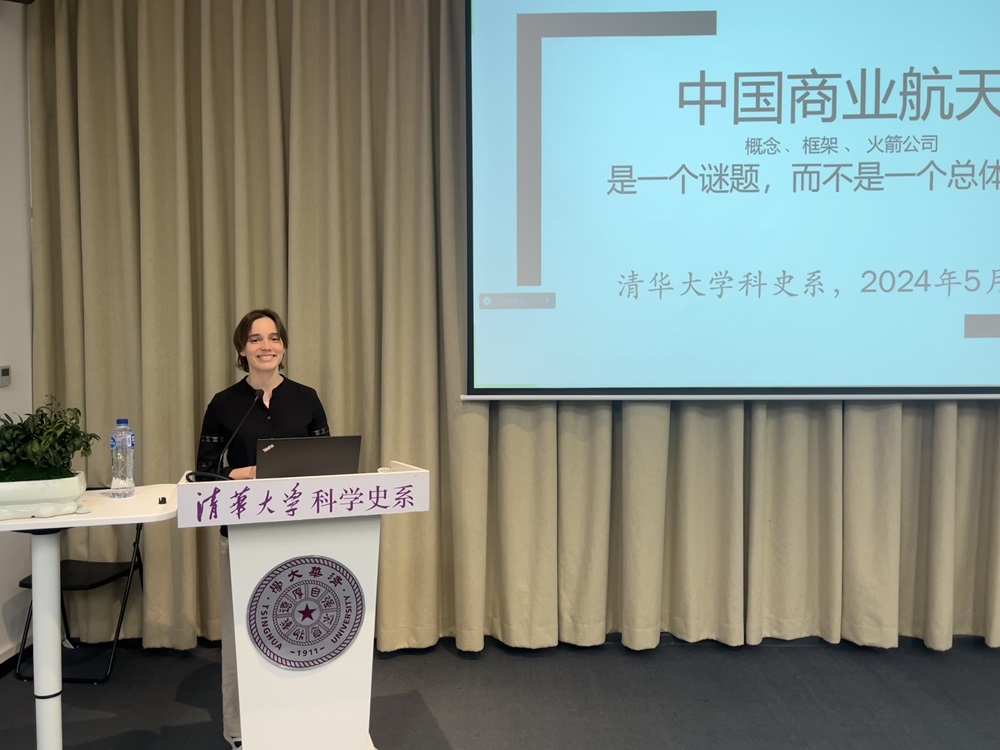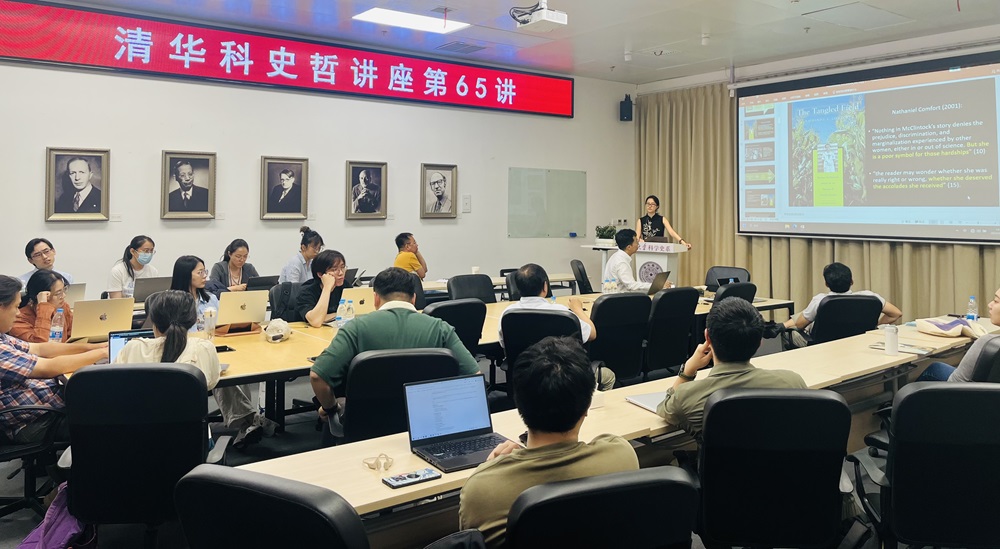
In her lecture, Wu Qinyan provided an in-depth analysis of Barbara McClintock’s scientific contributions and the complex relationship between her work and the Nobel Prize. She noted that while McClintock received the 1983 Nobel Prize in Physiology or Medicine for her discovery of transposable elements, the core of her research lay in proposing the concept of genetic control and elucidating control systems in maize. To gain acceptance for the concept of genetic control within the scientific community, McClintock published a paper in 1961 arguing that the maize control system was analogous to the operon system discovered in E. coli by bacterial geneticists François Jacob and Jacques Monod. Regrettably, Jacob and Monod failed to grasp the parallels in McClintock’s work and dismissed its significance. Jacob and Monod were awarded the 1965 Nobel Prize for their work on gene control mechanisms, while McClintock’s control systems never gained widespread recognition.
Wu Qinyan detailed McClintock’s research on genetic control systems, particularly her groundbreaking work in maize genetics. McClintock’s definition of the Ac - Ds and Spm systems not only clarified the concept of genetic control but also demonstrated its diversity. Building on the 1961 dialogue, Wu explored why Jacob and Monod failed to understand McClintock’s research, emphasizing the critical role of gender. She argued that McClintock’s scientific journey reflected the challenges faced by women in academia, especially the lack of recognition from her male contemporaries. While gender issues are often discussed at the social level—such as employment barriers and wage gaps—Wu highlighted the intellectual dimension: whether a scientist’s work is acknowledged by peers. Citing historian Evelyn Keller, Wu further examined epistemological questions in scientific practice, particularly the notion of "gender-neutral science." She contrasted McClintock’s respect for biological individuality and her acknowledgment of cognitive limits with Monod’s natural philosophy, which held that studying E. coli could reveal universal truths about complex organisms such as elephants. Wu argued that this fundamental difference explains why Jacob and Monod struggled to comprehend McClintock’s work in 1961.

Following the lecture, Professor Wu Guosheng from the Department of the History of Science and Professor Liu Dong from the School of Life Sciences posed questions. Professor Wu noted that the 1961 dialogue is rarely mentioned in scientific histories, such as in The Eighth Day of Creation, which only briefly touches on it. Wu Qinyan responded that this oversight exemplifies the "Matilda Effect," where contributions by female scientists are not only undervalued by peers but also overlooked by historians. Her lecture aimed to address this gap. Professor Liu remarked that awarding the Nobel Prize to McClintock at the age of 81 was both a recognition of her discovery of transposons and a belated acknowledgment of her pioneering work. Professor Wu added that while the 1983 Nobel Prize honored her discovery of transposons, her research on control systems was equally revolutionary. Wu Qinyan emphasized that control systems were central to McClintock’s work but were never honored with a Nobel Prize, which instead went to Jacob and Monod for gene control.
Professor Jiang Che raised the issue of differing scientific perspectives between French and Anglo-American biologists, advising against oversimplifying opposing views in academic discourse. In response, Wu Qinyan distinguished between Jacob’s and Monod’s stances: after 1965, Jacob shifted to using mice as models, acknowledging differences between higher organisms and bacteria, while Monod maintained that "what is true for E. coli is true for the elephant." Such nuanced distinctions, she argued, are essential for a balanced evaluation of their contributions. Student Zuo Ningyu asked whether there exists a "standard" for determining peer recognition of scientific theories. Wu Qinyan replied that historians tend to analyze cases contextually; in McClintock’s case, transposons earned her a Nobel Prize and broad acceptance, whereas her maize control systems did not.
The lecture deepened attendees’ understanding of the history of science and gender issues while underscoring the importance of holistic evaluations of scientific achievements, particularly when considering cultural and gendered biases. Through her research, Wu Qinyan reminds us that scientific progress requires more inclusive and diverse perspectives to foster equitable academic recognition.

